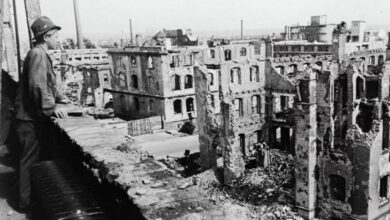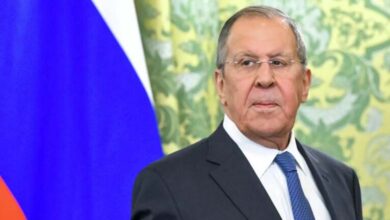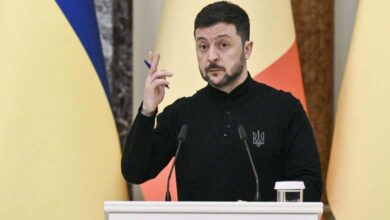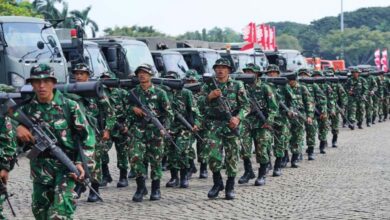Arab and International Presence at Raisi’s Funeral
More than 40 foreign delegations participated in the mourning ceremonies in Tehran, while state television spoke of a "two-million farewell" for Raisi
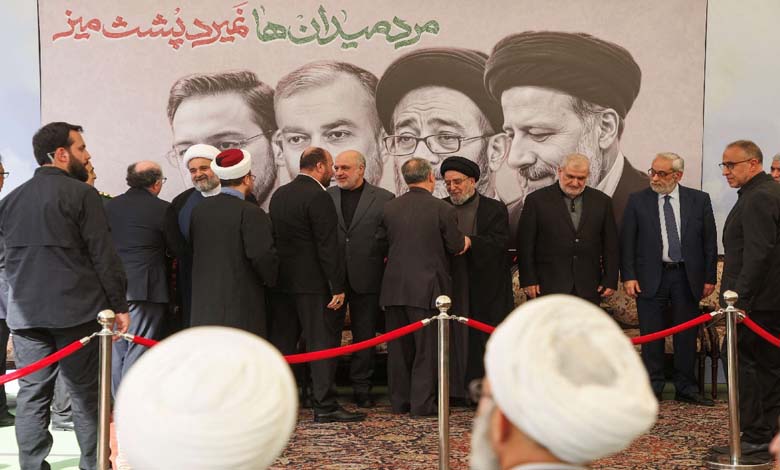
The Supreme Leader of the Islamic Republic, Ayatollah Ali Khamenei, led the funeral prayer for Iranian President Ebrahim Raisi this Wednesday in Tehran, as massive crowds gathered to participate in his funeral, attended by numerous Arab leaders and foreign ministers from dozens of countries.
Tunisian President Kais Saied, Qatari Emir Sheikh Tamim bin Hamad Al Thani, Egyptian Foreign Minister Sameh Shoukry—the first Egyptian Foreign Minister to visit Tehran since the Islamic Revolution in 1979—along with Emirati Foreign Minister Abdullah bin Zayed and Saudi Foreign Minister Prince Faisal bin Farhan attended the ceremony in Tehran.
Qatar maintains good relations with Iran and has mediated between Tehran and the United States, but relations between other Gulf states and Iran have been marked by turmoil. These countries have accused the Islamic Republic of meddling in their internal affairs and supporting their regional enemies until Riyadh and Tehran signed a historic agreement to normalize relations in 2023.
That same year, the UAE also upgraded its diplomatic relations with Iran, with the two countries sharing over a century of trade and economic ties.
In 2022, Kuwait reappointed its ambassador to Tehran after recalling him in solidarity with Saudi Arabia when it cut ties with the Islamic Republic in 2016. However, tensions persist over the Durra gas field, claimed jointly and exclusively by Saudi Arabia and Kuwait, while Iran also demands a share.
The Qatari Emir, Sheikh Tamim bin Hamad Al Thani, led a high-level delegation including the Prime Minister and Foreign Minister Sheikh Mohammed bin Abdulrahman Al Thani, who traveled to Iran this Wednesday to offer condolences on the deaths of Raisi and Amir Abdollahian.
EU member states were absent from the ceremonies, while non-EU countries such as Belarus and Serbia sent representatives. The area around Tehran University was packed with mourners where the funeral prayer was held before the procession moved to Enghelab and Azadi squares.
State television spoke of a “two-million farewell” for Raisi, seen by many as a potential successor to Khamenei as Supreme Leader.
Pallbearers carried the coffins of Raisi, as well as those of Foreign Minister Hossein Amir-Abdollahian and other officials killed alongside the president in the helicopter crash near the Azerbaijan border. A Tehran resident said many people received a text message inviting them to “attend the martyr’s funeral.”
Joining the funeral procession were Ismail Haniyeh, head of the Hamas political bureau, and Naim Qassem, deputy secretary-general of Hezbollah.
Haniyeh told the crowd, “We are confident that the Republic will continue its policies and principles under the leadership of its leader in supporting Palestine and the resistance,” amid chants of “Death to Israel.”
Acting President Mohammad Mokhber later received presidents and representatives from Middle Eastern, North African, Asian, and European countries.
Media reported that more than 40 foreign delegations, including officials from Iraq, Pakistan, Qatar, Turkey, Egypt, Tunisia, Kuwait, Russia, China, Armenia, and Azerbaijan, participated in the mourning ceremonies in Tehran on Wednesday afternoon.
The “Al Arabiya” channel earlier reported that Saudi Foreign Minister Prince Faisal bin Farhan would also attend the ceremonies in his second visit to Tehran since the 2023 agreement to restore relations after years of hostility.
In the capital, large banners praising the late president as the “martyr of service” were raised, while others bid farewell to the “supporter of the deprived.”
A funeral attendee, identifying herself as Maryam, said she came from Varamin, south of Tehran, to attend the president’s farewell: “I felt sad. I came to find solace and to offer solace to the heart of the Supreme Leader.”
The funeral ceremonies for the late president and his accompanying delegation members began on Tuesday, with tens of thousands of mourners dressed in black participating in the cities of Tabriz and Qom.
From Tehran, the bodies will be transported to Mashhad, Raisi‘s birthplace in the northeast, where they will be buried on Thursday after a funeral ceremony at the Imam Reza shrine.
Khamenei declared a five-day national mourning period and tasked Vice President Mohammad Mokhber (68) with assuming presidential duties until the June 28 election to choose Raisi‘s successor.
Ali Bagheri, the chief negotiator on Iran’s nuclear dossier and former deputy to Amir-Abdollahian, was appointed acting foreign minister and ordered the country’s armed forces chief of staff to investigate the helicopter crash.
Raisi was elected president in 2021, succeeding moderate Hassan Rouhani amid economic decline due to U.S. sanctions over Iran’s nuclear activities.
Raisi‘s tenure, marked by his hardline conservatism, saw massive protests and a worsening economic crisis. After his death, Russia and China, Iran’s allies and regional powers, offered their condolences, as did NATO, while the UN Security Council observed a minute of silence.
Condolences also poured in from Iran’s regional allies, notably the Syrian government, the Palestinian Hamas movement, and Lebanon’s Hezbollah.





